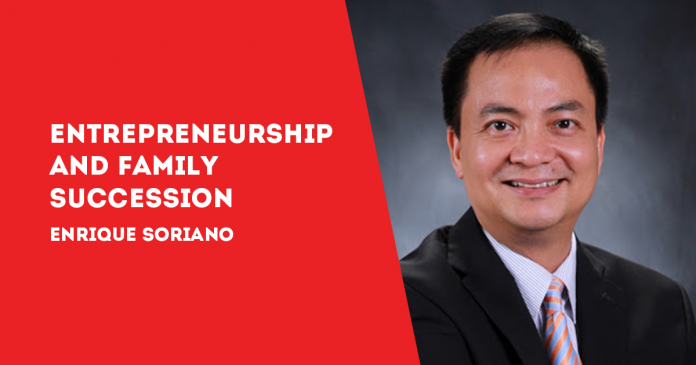
BY PROF. ENRIQUE SORIANO
IN ANY ASIAN economy, family businesses contribute more than 60% of any country’s Gross Domestic Product (GDP) and can employ up to 70% of the labor force. Not only do they play a significant role in an economy, but so are their stories, especially for overseas Chinese, whose stories are replete with a deep history of grit and determination.
We have always heard inspiring tales of young and adventurous Chinese leaving their families behind to seek better lives overseas. Most, if not all of these migrants, came from humble beginnings, and many were uneducated but armed with the desire to eke out a living so they could send money back home.
They usually start as laborers, and after years of hard work, they become skilled craftsmen. With savings accumulated through the years, they are then able to open a small trading business. This is the beginning of the first stage of an enterprising family where the founder toils day and night, ably supported by a wife whose primary role is to take care of the offspring. This exodus of workers happened more than a century ago.
Despite the lack of systems, the unclear entry and exit rules, the absence of appropriate accounting practices, and an undefined strategy, the business takes off under the founder’s unparalleled hard work, speed, risk-taking, business networking, and connection. As the wealth multiplies, the parent founder presses his children to work for the family business just like what his father did in the past.
Unknowingly, he is also courting trouble. As the company morphed into a complicated and tangled structure of opportunistic decision-making culture, it will be hobbled by emotional issues brought about by the entry of inexperienced, unqualified, or disinterested offspring and their in-laws. Two to three generations later, the cycle continues. For entrepreneurs with foresight, they will end up dominating their respective industries, but for how long?
In the next 10 years, two out of three family-owned firms will experience a change in leadership due to retirement, semi-retirement, or death. Eighty percent of the older generation shareholders have not completed any form of ownership transfer and tax mitigation planning other than purchasing insurance.
Despite the huge percentage of these owners procrastinating, 95% strongly prefer that the business should stay and still be owned and managed by the family. This inclination to preserve the legacy contradicts an owner’s mindset of not transferring ownership and sharing power to the next generation.
And finally, a staggering 96% surveyed mentioned that they have no family agreements similar to a family constitution and a shareholders agreement. Indeed, any triggering event like death and misconduct can wipe out the gains of the founder overnight.
Given these grim statistics surveyed by our firm W+B Family Advisory in 2020, the question now is how the founders of these firms will pass the business on to the next generation. Indeed, for many, this will be their first experience at succession planning.
Moreover, transitioning from the parent/owner generation to the next set of leaders is one of the most precarious events filled with traps many overseas Chinese entrepreneurs fall into. It is a dilemma that business leaders are often confronted with, and unless they initiate the process early, succession planning will be a huge and daunting challenge.
For successful overseas Chinese business owners, there are also cultural implications to consider. One of the critical issues worth mentioning is the eldest son succession system which has been in existence in China for more than a thousand years. It was the best formula mandated as a national law during that time as it was meant to manage sons of concubines vying for the throne.
But under the present circumstance, it is contrary to corporate best practices. To grow the business, appointing the most qualified and most deserving individual, regardless if the successor is a family member or not, is clearly the most logical choice.
Unfortunately, business owners struggle with this governance mindset. Crucially, it is important that when making decisions related to growth, stewardship and legacy, founders must always reflect on the concept of making decisions based on the “greater good” model./PN

